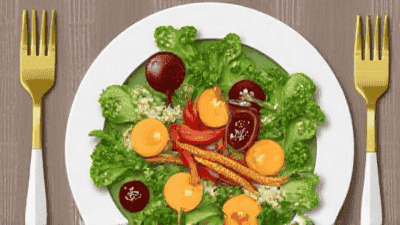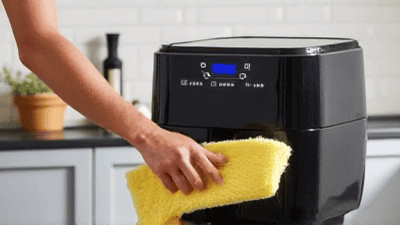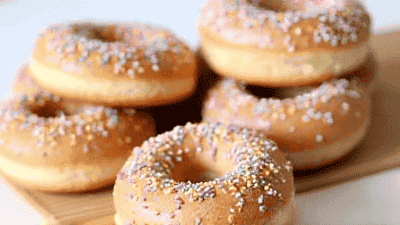Immunity Boost: 5 Probiotic-Rich Recipes
In today's health-conscious society, many individuals are increasingly interested in ways to enhance their immune systems naturally. One effective approach to improving immunity is through dietary choices, particularly the inclusion of probiotics.

In today's health-conscious society, many individuals are increasingly interested in ways to enhance their immune systems naturally. One effective approach to improving immunity is through dietary choices, particularly the inclusion of probiotics. Probiotics are live bacteria and yeasts that provide numerous health benefits, especially for digestive health and immune function.
Understanding Probiotics
What are Probiotics?
Probiotics are often referred to as "good" or "friendly" bacteria. They are microorganisms that provide health benefits when consumed in adequate amounts. Probiotics are found naturally in fermented foods and can also be taken in supplement form. These beneficial bacteria play a vital role in maintaining the balance of gut microbiota, the diverse community of microorganisms present in the digestive tract.
The Importance of Gut Health
The gut is home to trillions of microorganisms, both good and bad. A healthy balance of these microorganisms is crucial for various bodily functions. An imbalance in gut bacteria can lead to digestive issues, inflammation, and an increased risk of infections. This is where probiotics come into play.
How Probiotics Support Immune Function
Research has shown that probiotics can significantly enhance immune function:
Enhanced Gut Barrier: Probiotics help strengthen the gut lining, preventing harmful pathogens from entering the bloodstream.
Production of Antibodies: Probiotics stimulate the production of antibodies, which are proteins that help the immune system identify and neutralize pathogens.
Anti-Inflammatory Properties: Certain probiotic strains can reduce inflammation in the body, helping to manage conditions linked to chronic inflammation.
Microbiome Balance: A healthy microbiome supports overall immune function, making it more resilient to infections and diseases.
Probiotic-Rich Foods

Incorporating probiotic-rich foods into your diet is a delicious and effective way to boost immune health. Here are some commonly consumed probiotic-rich foods:
Yogurt: One of the most well-known sources of probiotics, yogurt is made by fermenting milk with specific bacterial cultures.
Kefir: Similar to yogurt but fermented with a wider variety of bacteria and yeasts, kefir is a tangy, drinkable probiotic-rich beverage.
Sauerkraut: Fermented cabbage that is packed with flavor and beneficial bacteria.
Kimchi: A spicy Korean dish made from fermented vegetables, typically including cabbage and radishes.
Miso: A fermented soybean paste often used in Japanese cuisine that contains various probiotic strains.
Tempeh: A fermented soybean product that is a great source of protein and probiotics.
Kombucha: A fermented tea beverage that is both refreshing and rich in probiotics.
Now that we've established the importance of probiotics, let's dive into five delicious recipes that are not only rich in probiotics but also easy to prepare.
1. Homemade Yogurt
Making yogurt at home is simpler than you might think and allows you to enjoy a fresh, probiotic-rich snack or breakfast option.
Ingredients:
- 4 cups whole milk (or any milk of choice)
- 1/4 cup plain yogurt with live cultures
- Optional: Sweeteners (honey, maple syrup) and flavorings (vanilla extract, fruit)
Instructions:
Heat the Milk: In a saucepan, heat the milk over medium heat until it reaches about 180°F (82°C). This step helps to kill any unwanted bacteria.
Cool the Milk: Remove the saucepan from heat and allow the milk to cool until it reaches about 110°F (43°C).
Add Yogurt Culture: In a small bowl, mix the plain yogurt with a few tablespoons of the cooled milk until smooth. Then, stir this mixture back into the saucepan.
Incubation: Pour the mixture into a clean container and cover it with a clean towel. Place it in a warm spot in your kitchen, like the oven (turned off) or wrapped in a blanket, to keep the temperature steady. Let it ferment for 6 to 12 hours, depending on how tangy you like your yogurt.
Refrigerate: After fermentation, move the yogurt to the refrigerator. It will thicken further as it cools. Serve with your favorite toppings like fruits, nuts, or honey.
2. Sauerkraut

Making homemade sauerkraut is not only a great way to introduce probiotics into your diet but also an opportunity to enjoy deliciously tangy cabbage.
Ingredients:
- 1 medium green cabbage
- 1 tablespoon sea salt
- Optional: Caraway seeds for flavor
Instructions:
Prepare Cabbage: Remove the outer leaves of the cabbage and rinse it. Shred the cabbage into thin strips.
Mix with Salt: In a large mixing bowl, combine the shredded cabbage and sea salt. Massage the salt into the cabbage with your hands, releasing its juices.
Pack the Jar: Transfer the cabbage mixture into a clean, sterilized jar, pressing down firmly to avoid air pockets. The juices should cover the cabbage completely; if not, add a little more salted water (1 teaspoon of salt dissolved in 1 cup of water).
Cover: Loosely cover the jar with a lid or cloth to allow gases to escape during fermentation.
Ferment: Leave the jar at room temperature for about 1 to 4 weeks, depending on your desired sourness. Taste the sauerkraut periodically.
Store: Once fermented to your liking, seal the jar and store it in the refrigerator. Enjoy it as a side dish or ingredient in salads and sandwiches.
3. Kimchi
This famous Korean dish is packed with flavor and probiotics, making it a fantastic addition to your meals.
Ingredients:
- 1 medium Napa cabbage
- 1/4 cup sea salt
- Water (for soaking)
- 1 tablespoon grated ginger
- 1 tablespoon minced garlic
- 2 tablespoons fish sauce (or soy sauce for a vegetarian version)
- 2-3 tablespoons Korean chili powder (gochugaru)
- 1 cup grated carrots
- 4-5 green onions, chopped
Instructions:
Prepare Cabbage: Chop the Napa cabbage into quarters and remove the core. Cut it into bite-size pieces and soak in water mixed with sea salt for 1-2 hours.
Make the Paste: In a small bowl, combine the garlic, ginger, fish sauce, chili powder, and a bit of water to create a paste.
Mix Vegetables: After soaking, rinse the cabbage thoroughly and drain. In a large mixing bowl, combine the cabbage, carrots, and green onions with the chili paste. Mix well with your hands (use gloves if desired).
Pack it Tight: Transfer the mixture into a clean jar, packing it tightly to eliminate as much air as possible.
Ferment: Leave the jar at room temperature for 2-5 days, checking daily for taste. Once it reaches the desired tanginess, store it in the refrigerator.
4. Miso Soup

Miso is a fermented soybean paste loaded with beneficial probiotics. Enjoy it as a warming soup or a flavorful broth.
Ingredients:
- 4 cups water
- 3 tablespoons miso paste (red or white)
- 1 cup tofu, cut into cubes
- 1 cup seaweed (e.g., wakame)
- 2 green onions, chopped
Instructions:
Boil Water: In a pot, bring water to a simmer.
Mix Miso Paste: In a small bowl, mix miso paste with a ladleful of warm water to dissolve.
Combine: Add the dissolved miso back into the pot along with tofu and seaweed. Stir gently and heat for about 3-5 minutes, but do not boil as high heat can destroy the beneficial bacteria.
Serve: Ladle into bowls, garnish with chopped green onions, and enjoy warm.
5. Probiotic Rich Overnight Oats
Overnight oats are a quick and convenient way to incorporate probiotics into your breakfast routine.
Ingredients:
- 1/2 cup rolled oats
- 1/2 cup yogurt (preferably with live cultures)
- 1/2 cup almond milk (or milk of choice)
- 1 tablespoon chia seeds
- 1 tablespoon honey (optional)
- Toppings: fresh fruits, nuts, or seeds
Instructions:
Combine Ingredients: In a mason jar or bowl, combine rolled oats, yogurt, almond milk, chia seeds, and honey. Stir well.
Refrigerate Overnight: Seal with a lid or cover and refrigerate overnight.
Serve: In the morning, give the oats a good stir and top with your favorite fruits, nuts, or seeds before enjoying.
Tips for Incorporating Probiotics into Your Diet
In addition to the delicious recipes provided, here are some tips on how to seamlessly incorporate probiotics into your daily diet:
1. Start Your Day with Yogurt
Begin your morning with a serving of yogurt topped with fruits and nuts. This simple breakfast is an excellent source of probiotics and nutrients.
2. Snack on Fermented Foods
Keep small portions of fermented foods like sauerkraut, kimchi, or pickles on hand for quick snacks. These foods can add flavor to your meals and provide your body with beneficial bacteria.
3. Use Miso Paste in Cooking
Miso paste can be added to marinades, dressings, or soups to enhance flavor and complexity while providing probiotics.
4. Experiment with Kombucha
Kombucha is a popular fermented tea that can be enjoyed as a refreshing beverage. Choose low-sugar options to maximize health benefits.
5. Make Probiotic Smoothies
Add yogurt or kefir to your smoothies for a delicious boost of probiotics along with your favorite fruits and greens.
Conclusion
Incorporating probiotics into your diet is a powerful way to support your immune system, improve gut health, and promote overall well-being. The five probiotic-rich recipes provided here are not only delicious but also easy to prepare at home, making it simple for anyone to enjoy the benefits of these healthy foods.
As you embark on your journey toward enhanced immunity, remember to focus on a balanced diet that includes a variety of whole foods. A diverse intake of nutrients, combined with regular physical activity and stress management, will further enhance your health and wellness.
By boosting your intake of probiotics, you are not just improving digestion; you are actively contributing to a stronger and more resilient immune system. Enjoy experimenting with these recipes and embrace the many flavors and benefits of probiotic-rich foods.




